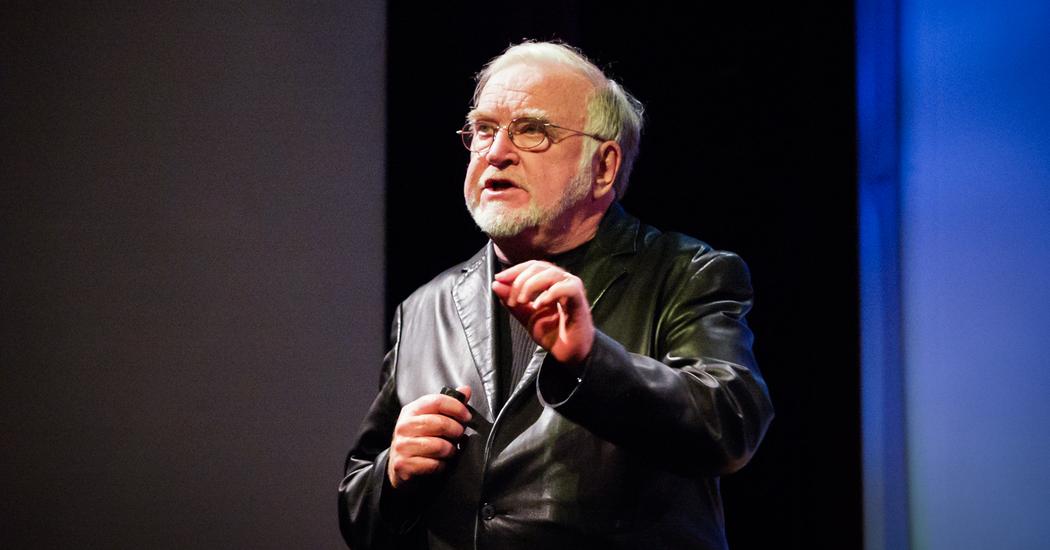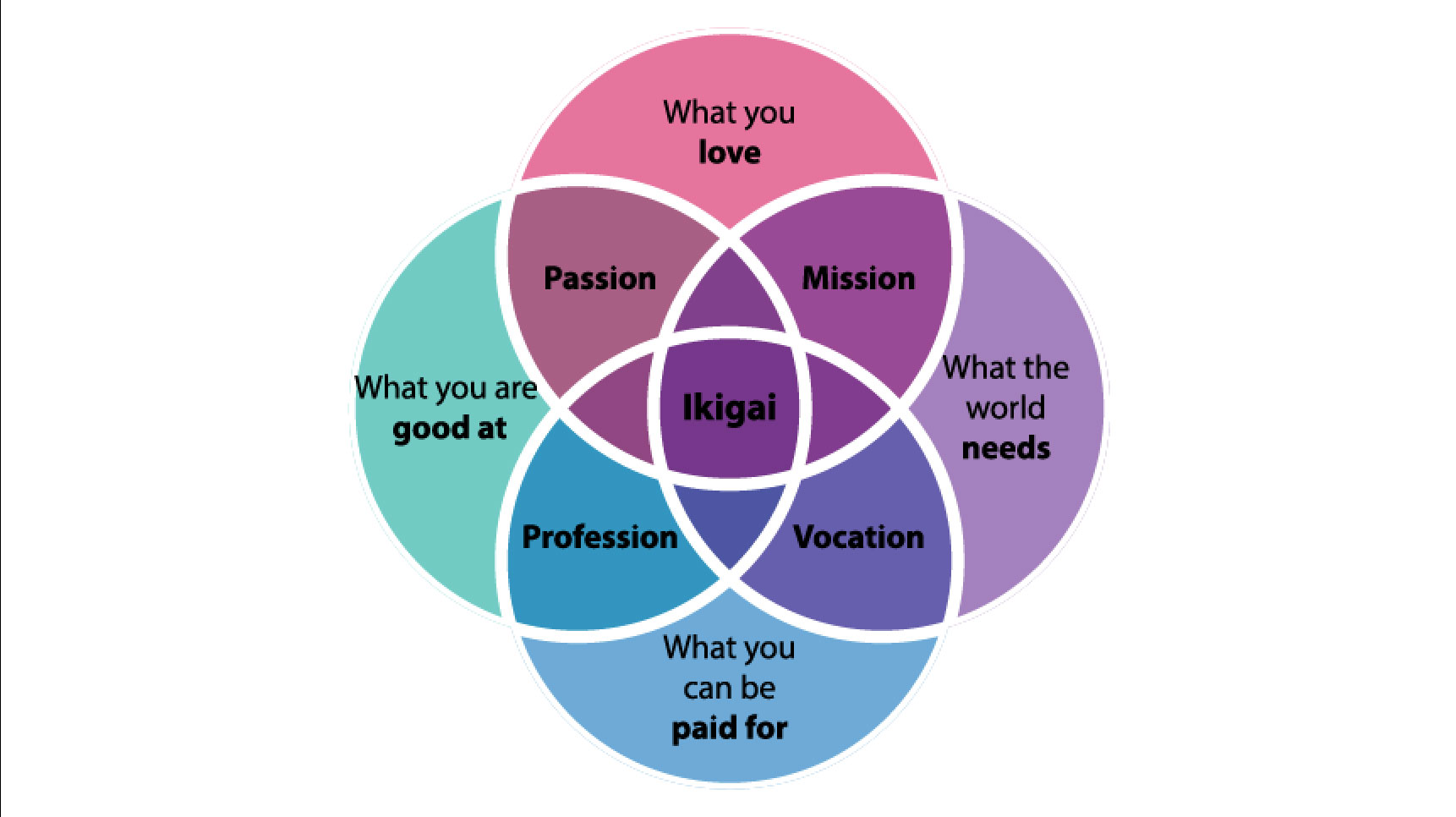Mihaly Csikszentmihalyi was one of the greatest psychologists of the 20th century and while he is best known for his popular book Flow: The Psychology of Optimal Experience, he also wrote a number of other excellent books on creativity, happiness and invention.
In his research on flow states and peak experiences, he conducted one of the largest psychological studies ever studying the lives, habits and mindsets of the world’s best performers across a wide variety of disciplines.
He also studied people who did menial jobs but reported a high degree of satisfaction and fulfillment in their lives.
What he discovered is that most people are actually quite bad at predicting what makes them happy but high performers almost always know exactly what get engages them and makes them feel the happiest.
The essence of his ideas about flow psychology can be summarized in this quote:
“Control of consciousness determines quality of life and it’s not what you do but how you do it.”
1. Flow: The Secret To Happiness:
Learn about Mihaly Csikszentmihalyi’s work by watching his excellent TED Talk.
2. A Short Biography of Mihaly Csikszentmihalyi:
A short overview of his life growing up in Hungary, escaping Communism and becoming a well-known psychology at the University of Chicago in the United States.
3. The Creative Person and The Creative Context Talk:
When do you feel creative? Where does creativity come from?
Dr. Csikszentmihalyi reviews the common traits of creative people and introduces the “Systems Model” of creativity, which describes the types of environments that foster innovation.
4. Mihaly Csikszentmihalyi’s Books:
Here are his books best books for learning about Flow Psychology:
1. Flow: The Psychology of Optimal Experience
2. Creativity: Flow and the Psychology of Discovery and Invention
3. Finding Flow: The Psychology Of Engagement With Everyday Life
4. The Evolving Self: A Psychology for the Third Millennium
5. Beyond Boredom and Anxiety: Experiencing Flow in Work and Play
Here are is a good book reviews and summary of his seminal work Flow: The Psychology of Optimal Experience:
5. The Characteristics of Flow
Here are the 8 Characteristics of Flow that Mihaly Csikszentmihalyi describes in his books:
1. Complete concentration on the task
2. Clarity of goals and reward in mind and immediate feedback
3. Transformation of time (speeding up/slowing down of time)
4. The experience is intrinsically rewarding, has an end itself
5. Effortlessness and ease
6. There is a balance between challenge and skills
7. Actions and awareness are merged, losing self-conscious rumination
8. There is a feeling of control over the task
6. Best Mihaly Csikszentmihalyi Quotes
Here are some of Mihaly Csikszentmihalyi’s best quotes that I’ve discovered on the web and from reading his books:
“Contrary to what we usually believe, moments like these, the best moments in our lives, are not the passive, receptive, relaxing times—although such experiences can also be enjoyable, if we have worked hard to attain them. The best moments usually occur when a person’s body or mind is stretched to its limits in a voluntary effort to accomplish something difficult and worthwhile. Optimal experience is thus something that we make happen. For a child, it could be placing with trembling fingers the last block on a tower she has built, higher than any she has built so far; for a swimmer, it could be trying to beat his own record; for a violinist, mastering an intricate musical passage. For each person there are thousands of opportunities, challenges to expand ourselves.”
“Happiness is not something that happens. It is not the result of good fortune or random chance. It is not something that money can buy or power command. It does not depend on outside events, but, rather, on how we interpret them. Happiness, in fact, is a condition that must be prepared for, cultivated, and defended privately by each person. People who learn to control inner experience will be able to determine the quality of their lives, which is as close as any of us can come to being happy.”
“A joyful life is an individual creation that cannot be copied from a recipe.”
“Most enjoyable activities are not natural; they demand an effort that initially one is reluctant to make. But once the interaction starts to provide feedback to the person’s skills, it usually begins to be intrinsically rewarding.”
“If you are interested in something, you will focus on it, and if you focus attention on anything, it is likely that you will become interested in it. Many of the things we find interesting are not so by nature, but because we took the trouble of paying attention to them.”
“If one has failed to develop curiosity and interest in the early years, it is a good idea to acquire them now, before it is too late to improve the quality of life.
To do so is fairly easy in principle, but more difficult in practice. Yet it is sure worth trying. The first step is to develop the habit of doing whatever needs to be done with concentrated attention, with skill rather than inertia. Even the most routine tasks, like washing dishes, dressing, or mowing the lawn become more rewarding if we approach them with the care it would take to make a work of art. The next step is to transfer some psychic energy each day from tasks that we don’t like doing, or from passive leisure, into something we never did before, or something we enjoy doing but don’t do often enough because it seems too much trouble. There are literally millions of potentially interesting things in the world to see, to do, to learn about. But they don’t become actually interesting until we devote attention to them.”
“What one needs to learn is to control attention. In principle any skill or discipline one can master on one’s own will serve: meditation and prayer if one is so inclined; exercise, aerobics, martial arts for those who prefer concentrating on physical skills. Any specialization or expertise that one finds enjoyable and where one can improve one’s knowledge over time. The important thing, however, is the attitude toward these disciplines. If one prays in order to be holy, or exercises to develop strong pectoral muscles, or learns to be knowledgeable, then a great deal of the benefit is lost. The important thing is to enjoy the activity for its own sake, and to know that what matters is not the result, but the control one is acquiring over one’s attention.”
“Socializing is more positive than being alone, that’s why meetings are so popular. People don’t like being alone. That would be, however, an important skill to learn…”
“It is how we choose what we do, and how we approach it, that will determine whether the sum of our days adds up to a formless blur, or to something resembling a work of art.”
“it was found that the more often people report reading books, the more flow experiences they claim to have, while the opposite trend was found for watching television.”
“The quality of life does not depend on happiness alone, but also on what one does to be happy. If one fails to develop goals that give meaning to one’s existence, if one does not use the mind to its fullest, then good feelings fulfill just a fraction of the potential we possess. A person who achieves contentment by withdrawing from the world to “cultivate his own garden,” like Voltaire’s Candide, cannot be said to lead an excellent life. Without dreams, without risks, only a trivial semblance of living can be achieved.”
“One cannot lead a life that is truly excellent without feeling that one belongs to something greater and more permanent than oneself.”
“Even if we don’t want to admit it, the ability to overcome most obstacles is within our hands. We can’t blame family, society, or history if our work is meaningless, dull, or stressful. Admittedly, there are not too many options when we realize that our job is useless, or actually harmful. Perhaps the only choice is to quit as quickly as possible, even at the cost of severe financial hardship. In terms of the bottom line of one’s life, it is always a better deal to do something one feels good about than something that may make us materially comfortable but emotionally miserable. Such decisions are notoriously difficult, and require great honesty with oneself.”
“The roots of interpersonal conflict are often an excessive concern for oneself, and an inability to pay attention to the needs of others. It is sad to see how often people ruin a relationship because they refuse to recognize that they could serve their own interests best by helping others achieve theirs.”
“If everything was determined by the common human condition, by social and cultural categories, and by chance, it would be useless to reflect on ways to make one’s life excellent. Fortunately there is enough room for personal initiative and choice to make a real difference. And those who believe this are the ones with the best chance to break free from the grip of fate.”
“Much has been written about what makes families work. The consensus is that families that support the emotional well-being and growth of their members combine two almost opposite traits. They combine discipline with spontaneity, rules with freedom, high expectations with unstinting love.”
“To pursue mental operations to any depth, a person has to learn to concentrate attention. Without focus, consciousness is in a state of chaos.”
“While personal income in the U.S. more than doubled between i 96o and the 19gos in constant dollars, the proportion of people saying they are very happy remained a steady 30 percent. One conclusion that the findings seem to justify is that beyond the threshold of poverty, additional resources do not appreciably improve the chances of being happy.”
“According to the Greek philosophers, that we become truly human by devoting time to self-development-to learning, to the arts, to political activity. In fact the Greek term for leisure, scholea, is the root from which our word “school” comes from, since the idea was that the best use for leisure was to study.”
“The sacred books of Judaism, Christianity, Islam, Buddhism, and the Vedas are the best repositories of the ideas that mattered most to our ancestors, and to ignore them is an act of childish conceit. But it is equally naive to believe that whatever was written down in the past contains an absolute truth that lasts forever.”
“For better or for worse, at this time science is still the most trustworthy mirror of reality, and we ignore it only at our peril.”
“The only path to finding out what life is about is a patient, slow attempt to make sense of the realities of the past and the possibilities of the future as they can be understood in the present.”
“Unfortunately, while free time might be a necessary condition for happiness, by itself it is not sufficient to guarantee it. Learning how to use it beneficially turns out to be more difficult than expected. Nor does it seem that more of a good thing is necessarily better; as is true of so many other things, what enriches life in small quantities might impoverish it in larger doses.”
“When the lifestyle of a social group becomes obsolete, when work turns into a boring routine and community responsibilities lose their meaning, it is likely that leisure will become increasingly more important. And if a society becomes too dependent on entertainment, it is likely that there will be less psychic energy left to cope creatively with the technological and economic challenges that will inevitably arise.”
“Luckily, the world is absolutely full of interesting things to do. Only lack of imagination, or lack of energy, stand in the way. Otherwise each of us could be a poet or musician, an inventor or explorer, an amateur scholar, scientist, artist, or collector.”
“All too often those who extol most loudly the virtues of selflessness turn out to be motivated by greed and ambition.”
“It is the full involvement of flow, rather than happiness, that makes for excellence in life. When we are in flow, we are not happy, because to experience happiness we must focus on our inner states, and that would take away attention from the task at hand.”
“When the job presents clear goals, unambiguous feedback, a sense of control, challenges that match the worker’s skills, and few distractions, the feelings it provides are not that different from what one experiences in a sport or an artistic performance.”
“When idleness is forced on someone without a handsome income, it just produces a severe drop in self-esteem, and general listlessness. As John Hay-worth, a psychologist at the University of Manchester, has shown, young men out of work, even when paid relatively generous unemployment compensation, have a very hard time finding satisfaction in their lives.”
“So the first step in improving the quality of life consists in
engineering daily activities so that one gets the most rewarding experiences from them.”
“The requirements of life still dictate that we spend our time in a way that is not that different from the African baboons. Give and take a few hours, most people sleep one-third of the day, and use the remainder to work, travel, and rest in more or less the same proportions as the baboons do. And as the historian Emmanuel Le Roy Ladurie has shown, in thirteenth century French villages-which were among the most advanced in the world at the time-the most common leisure pursuit was still that of picking lice out of each other’s hair.”
“Without a consistent set of goals, it is difficult to develop a coherent self. It is through the patterned investment of psychic energy provided by goals that one creates order in experience. This order, which manifests itself in predictable actions, emotions, and choices, in time becomes recognizable as a more or less unique “self.”
“To live means to experience-through doing, feeling, thinking. Experience takes place in time, so time is the ultimate scarce resource we have. Over the years, the content of experience will determine the quality of life. Therefore one of the most essential decisions any of us can make is about how one’s time is allocated or invested.”
“To be trusted in a position of leadership, it helps to advance other people’s goals as well as one’s own.”
“If we don’t take charge of its direction, our life will be controlled by the outside to serve the purpose of some other agency. Biologically programmed instincts will use it to replicate the genetic material we carry; the culture will make sure that we use it to propagate its values and institutions; and other people
will try to take as much of our energy as possible to further their own agenda-all of this without regard to how any of this will affect us. We cannot expect anyone to help us live; we must discover how to do it by ourselves.”
“By learning to concentrate, a person acquires control over psychic energy, the basic fuel upon which all thinking depends.”
“In contemporary preliterate societies this knowledge is so deeply ingrained that a person who likes to be alone is assumed to be a witch, for a normal person would not choose to leave the company of others unless forced to do so.”
“Lack of true friends is often the main complaint of people confronting an emotional crisis in the second half of life.”
“Variety and frequency of sexual encounters have taken precedence over the depth and intensity of the relationship in which they are embedded. It is ironic that on this issue the traditional teachings of the churches are closer to a scientific position than the up-to-date beliefs of the populace, for an evolutionary approach confirms that the original purpose of sexuality is making children and binding the parental couple.”
“It is true that since
time immemorial those who paid another person’s wages were not particularly concerned with the well-being of their employees. It takes extraordinary inner resources to achieve flow while digging a mile below ground in a South African mine, or cutting sugarcane on a sweltering plantation. Even in our enlightened days, with all the emphasis on “human resources,” management is all too often disinterested in how employees experience work.”
“Work as we know it now is a very recent historical development. It didn’t exist before the great agricultural revolutions that made intensive farming possible about twelve thousand years ago.”
“As one focuses on any segment of reality, a potentially infinite range of opportunities for action-physical, mental, or emotional-is revealed for our skills to engage with. There is never a good excuse for being bored.”
“In the United States and the other technologically advanced societies, individualism and materialism have almost completely prevailed over allegiance to the community and to spiritual values.”
“Act always as if the future of the Universe depended on what you did, while laughing at yourself for thinking that whatever you do makes any difference.”
“It sounds somewhat ridiculous to say that one of the problems we face at this point in history is that we haven’t learned how to spend free time in a sensible way.”
“Flow tends to occur when a person’s skills are fully involved in overcoming a challenge that is just about manageable.”
“For real growth, it is necessary to find people whose opinions are interesting and whose conversation is stimulating. A more difficult, but in the long run even more useful, skill to acquire is the ability to tolerate solitude, and to even enjoy it.”
“The popular assumption is that no skills are involved in enjoying free time, and that anybody can do it. Yet the evidence suggests the opposite: free time is more difficult to enjoy than work.”
“If one reads the biographies of physicists like Bohr, Heisenberg, Chandrashekhar, and Bethe, one gets the impression that without hikes in the mountains and the vision of night skies their science would not have amounted to much.”
“When attention is focused, minor aches and pains have no chance to register in consciousness.”
“Traditionally, men’s identity and self-respect have been based on the ability to obtain energy from the environment for their own and their families’ use. Whether the satisfaction a man gets from doing a necessary job is partly genetically programmed, or is entirely learned from the culture, the fact is that more or less everywhere a man who is not a provider is to some extent a misfit.”
“As many a thinker since Aristotle has said, everything we do is ultimately aimed at experiencing happiness. We don’t really want wealth, or health, or fame as such-we want these things
because we hope that they will make us happy. But happiness we seek not because it will get us something else, but for its own sake.”




